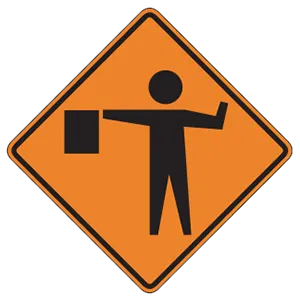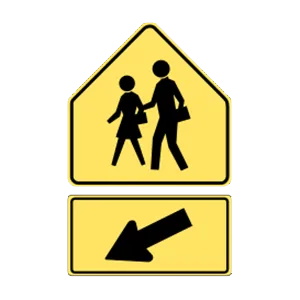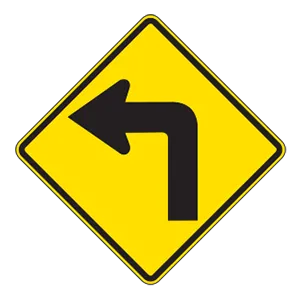Motorcycle Test | License NJ 2025 | FREE Online Practice! #7 Page 4 of 7
Take this FREE motorcycle test (license in NJ 2025) to check your knowledge of the road rules. To improve your results, download a motorcycle handbook online, study theory, and practice for free on our website. Still worried about how to get a motorcycle license in New Jersey in 2025? Check our website for more sample tests, train as much as possible, and boost your grades!
22 . Generally, the body eliminates how many alcoholic drinks per hour?
On average, a person's body can eliminate the alcohol content of about one drink per hour. The amount of time required to lower a person's blood alcohol content (BAC) can vary, so it is safest not to operate any motor vehicle after consuming any amount of alcohol.
23 . This sign means:

This sign indicates that there is a flagger ahead controlling traffic in a construction area.
24 . At a school crossing sign, you should:

You must always yield to pedestrians who are in or about to enter a crosswalk. Be alert to pedestrians when driving across intersections or turning.
25 . If a tire goes flat while riding and you must stop, it is usually best to:
If one of your tires fails, hold the handgrips firmly and begin to slow down by easing off the throttle while maintaining a straight course. If you must brake, gradually apply the brake of the tire that is still good, if you are sure of which tire that is. Edge toward the side of the road as you slow down, squeeze the clutch, and stop.
26 . When a group of riders is passing another vehicle on a two-lane road, the riders should:
When a group of motorcyclists is passing another vehicle on a two-lane road, the riders should pass the vehicle one at a time. Each motorcyclist should complete their pass before the next rider's pass begins.
27 . Riding gloves should:
Gloves made of leather, or another durable material, should be worn when riding. They will provide you with an improved grip on the handgrips, as well as help protect your hands in the event of a crash.
28 . This sign means:

Warning signs prepare drivers for upcoming road conditions and hazards and are usually yellow with black markings. This sign warns drivers that there is an upcoming sharp turn and that they should lower their speed accordingly.
See the exact questions that will be on the 2025 New Jersey DMV exam.
99.2% of people who use the cheat sheet pass the FIRST TIME
Jeneen was tired of paying $5/gallon. She got herself a scooter that required the motorcycle license. She studyed the motorcycle test cheat sheet and passed her test the next day!
Christopher tells us how he knew nothing prior to obtaining the motorcycle study guide, and he only got one question wrong because he clicked on the wrong answer by mistake.



